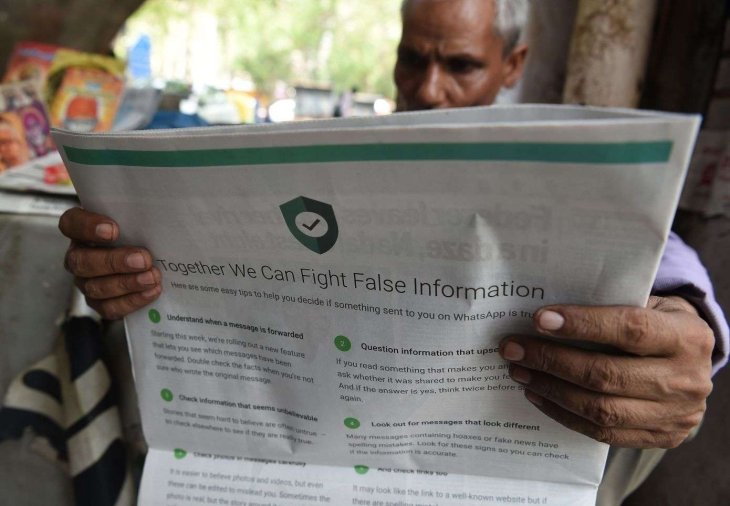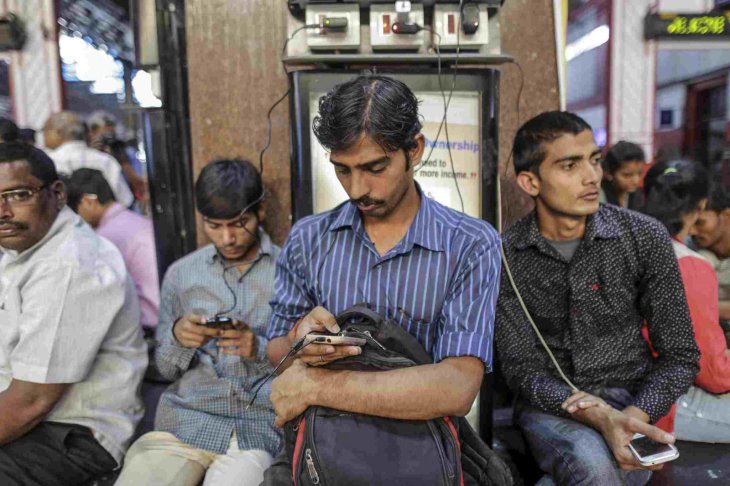Internet Security In India Threatened By The Government's Proposed Changes To Liability Rules
Dhir Acharya - Jan 11, 2020

The changes in liability rules may result in less security online as well as weaker encryption of users' content. Many companies and entities worry.
- Receive Buffers And Other Tips To Improve Your Internet Connection
- Delhi Is The World’s Most Polluted Capital City For Three Years In A Row
- Indian Farmers Install High-Tech, Night-Vision CCTV Cameras To Protect Themselves
Global encryption and security experts are joining several organizations to ask India to reconsider its proposed amendments to local intermediary liability rules.
Earlier this week, in an open letter sent to Ravi Shankar Prasad, the country’s IT Minister, 27 security and cryptography experts warned that if the Indian government goes with the change proposal to the law, security could be weakened and the use of strong encryption online could be limited.

In December 2018, the Indian government proposed changes to its intermediary liability rules, which would require significant changes in services of all businesses, even including those like Google and Facebook.
The original proposal says that intermediaries have to proactively filter and monitor the content posted and shared by their users and have to be able to trace the originator of questionable content so they won’t assume full liability for users’ actions. The Indian government defines intermediaries as services facilitating communication between two or more users, having at least five million users in the country.
The letter says:

End-to-end encryption means that service providers cannot see users’ decrypted content, according to the experts, some of whom work at Twitter, Google, Tor Project, Access Now, as well as World Wide Web Consortium.
This means such services cannot monitor users’ content at the required level as in the proposed amendments. There’s no way to make exceptional access for some without trading off the system’s overall security, no matter if services put a backdoor in their encryption protocol, store cryptographic keys in escrow, add silent users to group messages or any other way.
So far, tech firms have been under safe harbor laws, saying that tech platforms are not held liable for users’ content on their respective platforms.

Recently, several organizations have expressed their reservations about the proposed amendments to the law. Earlier this week, Cloudflare, GitHub, and Mozilla requested more transparency from the Indian government about their proposed amendments to its liability rules. Except for the government, nobody has seen the proposal’s current draft, which is planned for submission to the country’s Supreme Court by January 15.
One of the concerns is about how the term “intermediary” itself, which as defined by the Indian government, involves a wide range of services, including popular messaging platforms, internet providers, cyber cafes, even Wikipedia.
Last month, Wikimedia’s general counsel Amanda Keton requested the Indian government to have a second thought about requiring traceability in online communication. She warned that it would interfere with Wikipedia contributors’ ability to freely take part in the project.
Meanwhile, a US tech firm said that the Indian government needs to look into the intermediary guidelines.

Featured Stories

How To - Mar 04, 2026
Getting Started with AI: A Newbie's Simple Guide

ICT News - Mar 03, 2026
Budget Entry-Level PCs Under $500 to Vanish by 2028 Due to Memory Price Surge

ICT News - Mar 02, 2026
IDC Report Predicts Surging Smartphone Prices Due to Global RAM Shortage

ICT News - Mar 01, 2026
Samsung Links Galaxy S26 Price Hikes to AI Memory Supply Issues

ICT News - Feb 28, 2026
Anthropic Blacklisted by US Department of War: Trump Orders Federal Ban Over AI...

ICT News - Feb 26, 2026
AI Models Frequently Resort to Nuclear Escalation in Simulated Crises, Study...

ICT News - Feb 23, 2026
It's Over for Xbox: Asha Sharma Takes Over to Ruin Microsoft Gaming with AI

ICT News - Feb 22, 2026
Which AI Model Excels at Which Task in 2026: A Comprehensive Guide

ICT News - Feb 21, 2026
AI Coding Agent Causes Major AWS Outage at Amazon

ICT News - Feb 20, 2026
Tech Leaders Question AI Agents' Value: Human Labor Remains More Affordable
Read more

ICT News- Mar 03, 2026
Budget Entry-Level PCs Under $500 to Vanish by 2028 Due to Memory Price Surge
The era of the sub-$500 PC appears to be ending.

How To- Mar 04, 2026
Getting Started with AI: A Newbie's Simple Guide
Are you curious about artificial intelligence but not sure where to begin? You are not alone.

ICT News- Mar 02, 2026
IDC Report Predicts Surging Smartphone Prices Due to Global RAM Shortage
This development underscores the broader ripple effects of the AI boom on everyday technology, highlighting the interconnected nature of global semiconductor supply chains.
Comments
Sort by Newest | Popular